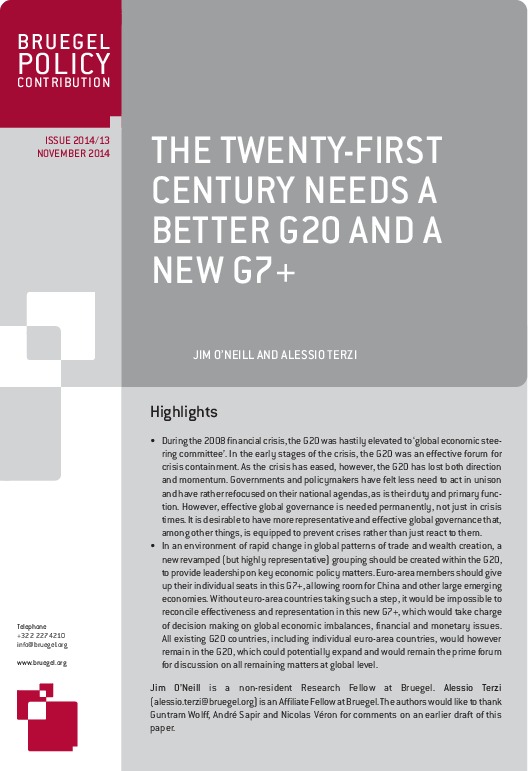Policy Contribution
The twenty-first century needs a better G20 and a new G7+
In an environment of rapid change in global patterns of trade and wealth creation, a new revamped (but highly representative) grouping should be created within the G20, to provide leadership on key economic policy matters. Euro-area members should give up their individual seats in this G7+, allowing room for China and other large emerging economies.
Read also Jim O’Neill and Alessio Terzi’s survey of the G20 sherpas ‘The world is ready for a global economic governance reform, are world leaders?‘
During the 2008 financial crisis, the G20 was hastily elevated to ‘global economic steering committee’. In the early stages of the crisis, the G20 was an effective forum for crisis containment. As the crisis has eased, however, the G20 has lost both direction and momentum. Governments and policymakers have felt less need to act in unison and have rather refocused on their national agendas, as is their duty and primary function. However, effective global governance is needed permanently, not just in crisis times. It is desirable to have more representative and effective global governance that, among other things, is equipped to prevent crises rather than just react to them.
In an environment of rapid change in global patterns of trade and wealth creation, a new revamped (but highly representative) grouping should be created within the G20, to provide leadership on key economic policy matters. Euro-area members should give up their individual seats in this G7+, allowing room for China and other large emerging economies. Without euro-area countries taking such a step, it would be impossible to reconcile effectiveness and representation in this new G7+, which would take charge of decision making on global economic imbalances, financial and monetary issues. All existing G20 countries, including individual euro-area countries, would however remain in the G20, which could potentially expand and would remain the prime forum for discussion on all remaining matters at global level.







